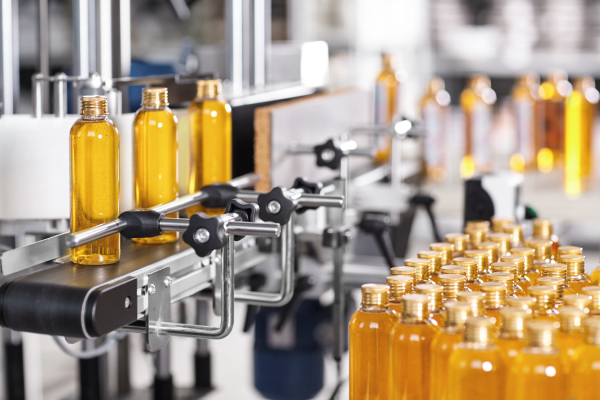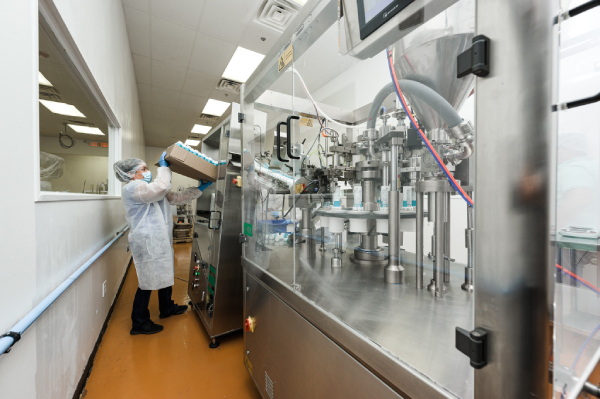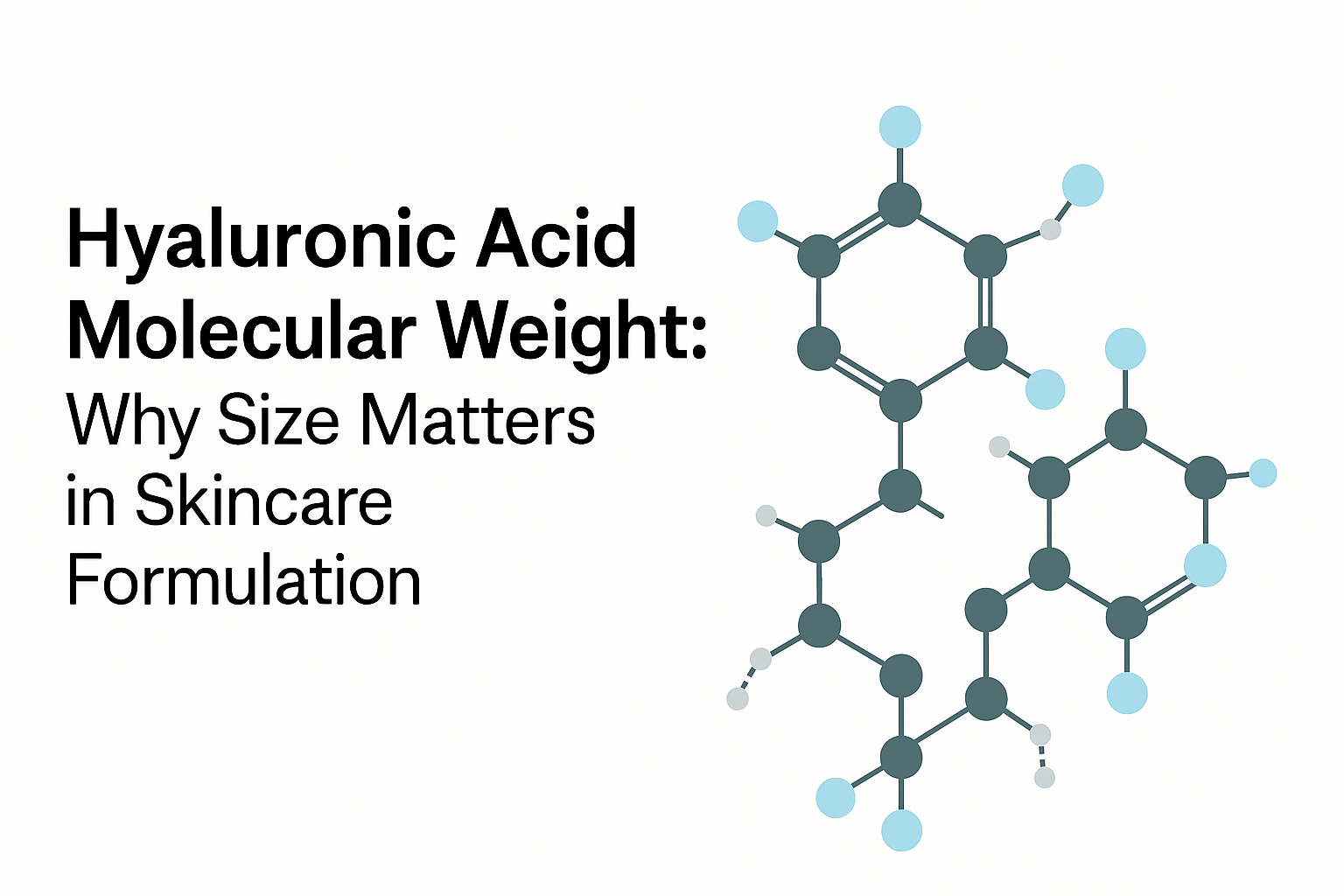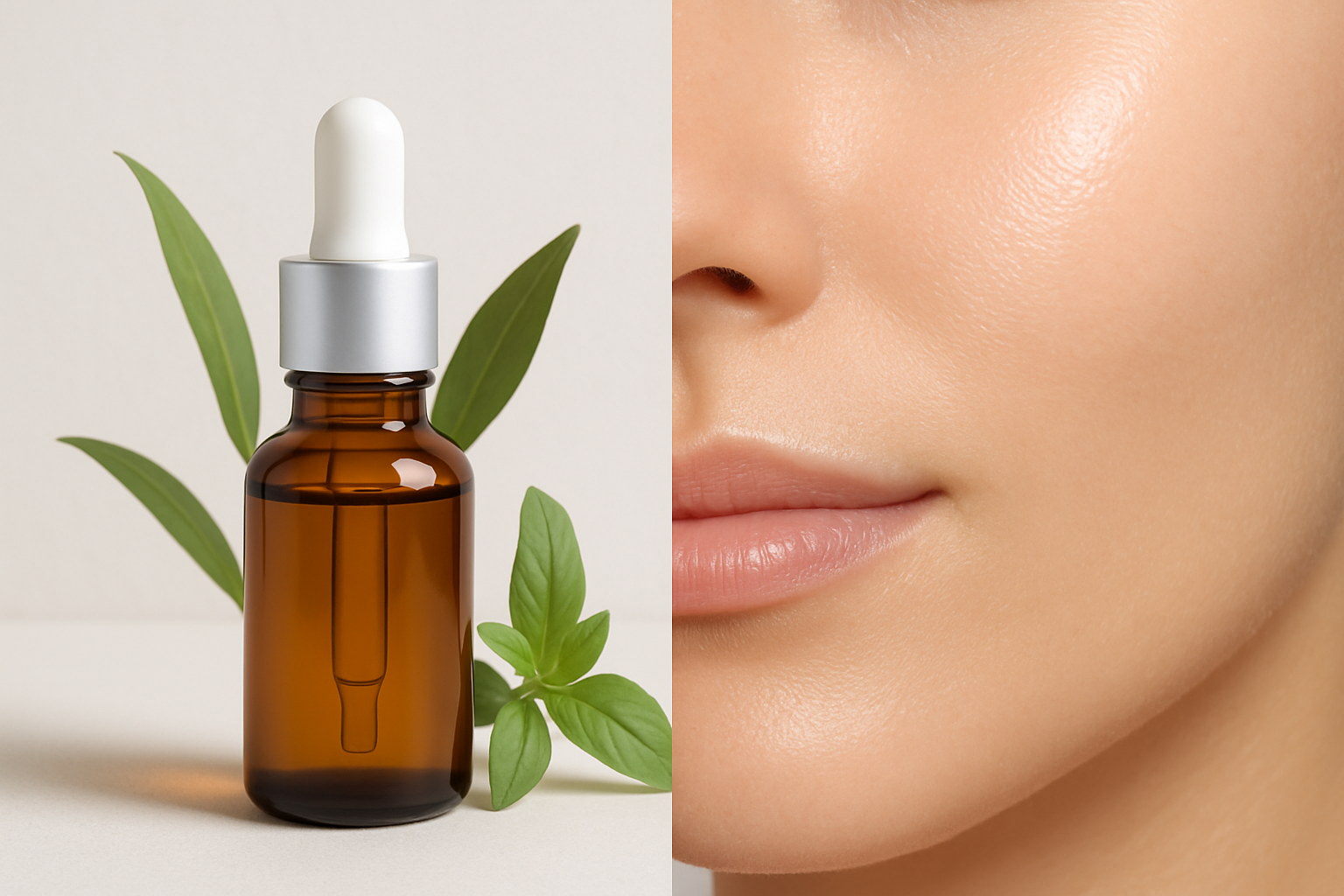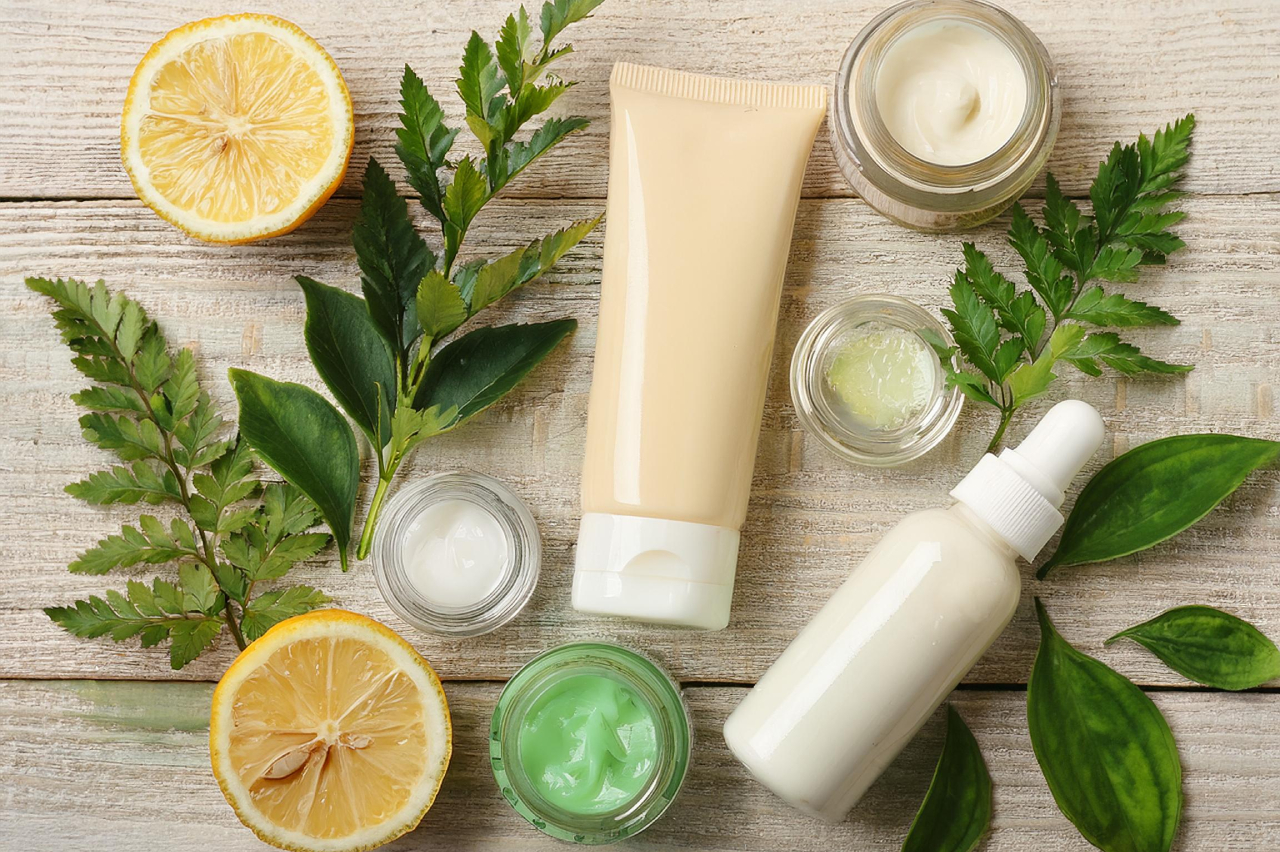Outsourcing the manufacturing of your skincare products can seem daunting due to all the risks associated with choosing the wrong manufacturer. Although the process is elaborate and time-consuming, you can complete this crucial task successfully, provided you know what to look for.
A reliable manufacturer is arguably the most important business partner you’ll ever have. This article will help you select the right manufacturer for your skincare brand step-by-step, starting with choosing between private labeling and contract manufacturing.
What Is the Difference Between Private Labeling and Contract Manufacturing?
The terms private labeling and contract manufacturing are often used interchangeably. Both private label skin care manufacturers and skincare contract manufacturers will produce the same end result – a product that suits your needs. However, there are noticeable differences in what these two services entail.
While most companies offer one or the other, InSpec Solutions offers both contract and private label manufacturing services. Consequently, you’ll be able to work with a highly knowledgeable team to determine which path makes the most sense for your brand.
What Is Private Labeling?
A private label skin care product is manufactured by one company and sold and branded by another. Private labeling is a streamlined manufacturing process that allows you to create skincare products quickly and efficiently.
Basically, your private label manufacturer will take care of every step, from product selection and formulation to manufacturing and packaging to shipping and shelving strategies.
The custom formulation makes all the difference in the manufacturing process. Companies like InSpec Solutions have teams of highly-skilled scientists that continually test new ingredient combinations to produce cutting-edge custom formulations. On top of that, an award-winning packaging design team will ensure your products also stand out from your competitors.
What Is Contract Manufacturing?
In most cases, skincare contract manufacturers focus solely on the manufacturing aspect of a product launch. Everything else is up to you, including creating the product formulation, coming up with the label design and packaging, and sourcing ingredients.
Some manufacturers can source the ingredients and have labs to formulate your product. However, these are typically stock formulations that you can choose from. For instance, InSpec Solutions offers over 600 formulations for the skincare, body, and hair care industries.
The Advantages of Private Labeling Skin Care Products
The most significant advantage of hiring a private label skin care manufacturer is the turn-key, off-the-shelf approach that requires less input on your end. Here are other advantages of private labeling skin care products that might sway you in this direction.
Offering Exclusivity
Thanks to the unique formulation and package design you can develop through private label manufacturing, your products will stand out. Nowadays, when the skincare market is oversaturated with new releases, creating a product that looks and feels different is crucial.
Achieving Higher Profit Margins
A private label skin care manufacturer is a one-stop shop for every aspect of launching a product. Since these manufacturers take care of everything, the upfront cost will be lower than it would be if you were to take over production yourself. Naturally, having a lower initial investment means your profit margin will be higher.
Launching the Product Faster
With private labeling, you don’t have to juggle between several companies and struggle to coordinate every aspect of the product launch. As a result, you’ll be able to launch your product significantly faster. Plus, the launch speed only increases over time. Once your private label skin care manufacturer irons out every detail of your custom order, reorders will be a breeze.
At InSpec Solutions, most research and development is conducted in-house, in a state-of-the-art laboratory. This further reduces the time needed to get your products into the hands of your customers.
Inspiring Customer Loyalty
Customer loyalty is instrumental to building a successful and long-lasting business. If customers are satisfied with your distinct product formulations and quick delivery times, they’ll trust and purchase every new product you decide to launch.
Going the private label route will undoubtedly create products your customers can get attached to and support in the long run.
The Advantages of Skin Care Contract Manufacturing
Hiring skincare contract manufacturers also comes with considerable benefits, especially compared to in-house manufacturing.
Providing Operational Flexibility
In-house manufacturing can be feasible for companies that have just started working their way into the skincare industry. However, it can rarely keep up with the demand once the products start taking off since scaling operations is often financially prohibitive.
In this case, turning to contract manufacturing will allow your business to scale operations seamlessly and meet the customers’ needs, regardless of the level of demand.
Lowering Operational Costs
Skincare contract manufacturers will relieve you of the often high equipment, tooling, and training costs by eliminating the need for you to scale your operations. Instead, you can direct your funds toward efforts to expand markets and increase your revenue.
In addition, your equipment won’t sit idle in times of low demand. After all, upkeep and overhead costs can burden even established companies, let alone smaller startups. Turning to contract manufacturing will alleviate most of this pressure, thus lowering your operational costs.
The same goes for inventory management. Since you can order units based on the demand, you won’t have any products laying around and potentially going to waste.
Improving Quality
Considering their expertise and years of experience in the industry, you can rest assured that skincare contract manufacturers will improve the overall quality of your products.
The team at InSpec Solutions stays up to date on the latest scientific research, ensuring your products only get better over time.
Who Is Private Labeling Best For?
Hiring a private label skin care manufacturer will primarily benefit the following clients:
- Skincare brands starting from scratch
- Individuals who still don’t have a clear brand vision
- Smaller companies with little experience of product launching
- Larger companies looking to add new products to their current roster
Who Is Contract Manufacturing Best For?
Skincare contract manufacturers are the way to go for these clients:
- Skincare startups that have significant financial resources
- Companies that already have filling, packing, storage, and fulfillment systems in place
- Brands looking to move into a new market
How to Choose the Right Skin Care Manufacturer?
By now, you have probably decided between private labeling and contract manufacturing. With the most critical decision out of the way, you can start choosing the right manufacturer for your skincare line.
Here are some steps that can help you find the right fit.
Step 1: Do Your Research
Being well-informed is crucial when choosing the best skincare manufacturer. Making impulse decisions without having the facts to back them up will almost certainly leave you with an inferior product.
The research you’ll need to conduct depends on your current knowledge and business plan. You can benefit from market research to determine reasonable service prices. Then, you can jump right into researching potential manufacturing partners. If you have friends in the same industry, you should ask them for recommendations.
Suppose you want your products to meet specific standards, such as being cruelty-free, vegan, and gluten-free. In that case, you should prioritize these requirements during your research.
Companies that meet these standards typically list them on their website. For instance, all InSpec Solutions products are vegan and cruelty, paraben, gluten, and sulfate-free. Plus, they use only non-toxic ingredients.
Step 2: Define Your Priorities
Before approaching specific manufacturers you found during the research phase, you should define your priorities for your brand and the collaboration in general. Of course, these priorities will differ from person to person, but here are some questions to help you get going:
- What are your non-negotiables?
- Do you need to have easy access to your products?
- Are you looking for insane attention to detail?
- Should the manufacturer help you problem-solve with sourcing ingredients and creating the packaging?
- How quick should the turnaround times be?
- Does the manufacturer offer clear communication channels during the development process?
- How much operational flexibility do you need?
In general, your chosen manufacturer should align with most of your priorities and have the capabilities, experience, and talent pool to meet your brand demands.
Step 3: Approach the Manufacturers
Armed with knowledge and set priorities, you can start arranging meetings with potential manufacturers.
In these meetings, you should focus on the following questions:
- Do they have the necessary materials to manufacture your product?
- What does their pricing look like?
- What kind of fees do they charge?
- Are there any bulk pricing benefits?
- Do their factory processes meet your quality standards?
- Do they have a minimum order quantity (MOQ)?
It would help if you also prepared a formal brief of what you expect from the manufacturers to ensure they can do your products justice. The more detailed the brief, the fewer chances for confusion and missteps.
One of the most crucial aspects that should be on everyone’s brief is good manufacturing practice (GMP). You’ll immensely benefit from knowing the basics of GMP and ensuring the manufacturer meets specific standards.
You should also pay close attention to the manufacturer’s facilities. The manufacturer you choose should operate in UL-audited, FDA and EPA-registered facilities practicing strict GMP standards, just like InSpec Solutions.
You can also request product samples from your highest-interest candidates during this stage. If the sample is sub-standard, all the other boxes they check no longer matter.
Step 4: Close the Deal
You should take care of a few more details before officially entering into business with your chosen manufacturer.
Most importantly, you must sign legally-binding contracts. These should include a non-disclosure agreement (NDA) and a performance-related contract. Moreover, you should ensure these contracts protect your intellectual property.
Before the actual manufacturing process starts, you should agree on the following product characteristics:
- Texture
- Color
- Viscosity
- Fragrance
You can check all your requests have been met by asking for a benchmark sample.
After ensuring you’re on the same page regarding each detail of the product formulation, you should discuss the following:
- Batch sizes
- Batch code placement
- Delivery times
Make an All-Out Effort for Your Business
As you can see, there are many factors to consider before outsourcing the manufacturing of your skincare products. However, your efforts will be rewarded. Establishing a reliable partnership with your manufacturer guarantees an upward trajectory for your business.
